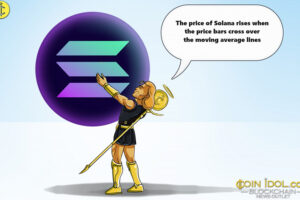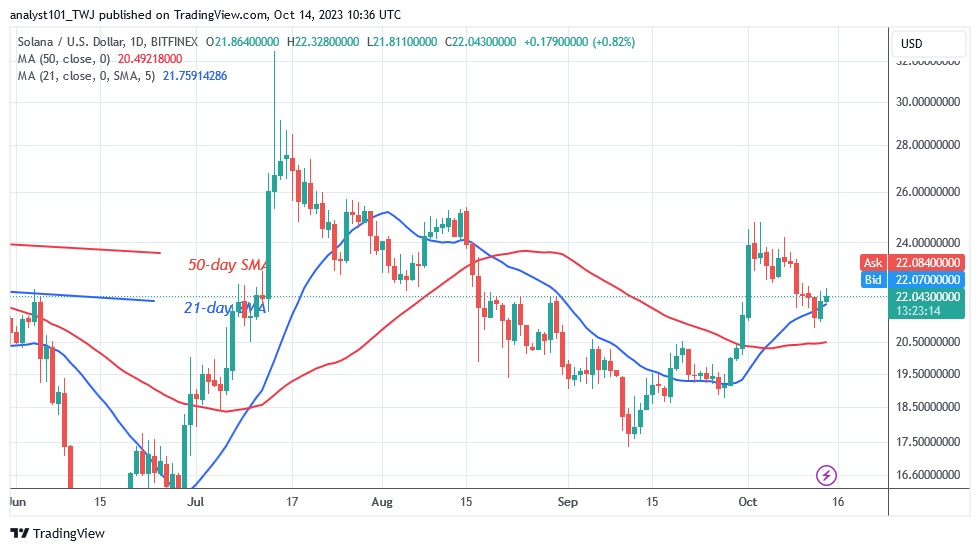Solana Continues Its Upward Trend, But Tests The High At $22.20

Cryptocurrency analysts of Coinidol.com report, the price of Solana (SOL) hit a low of $20.96, marking the end of its decline.
Solana long-term price forecast: bearish
The cryptocurrency asset fell below the 21-day simple moving average but remained above the 50-day simple moving average. On October 13, buyers kept the price above the 21-day line SMA, suggesting that the cryptocurrency may be on the upswing. If the upward momentum continues, Solana will reach a high of $28. However, the altcoin will face resistance near $26. If the cryptocurrency’s price falls below the 21-day line SMA, the cryptocurrency will have to stay in a range for a few days. Meanwhile, at the time of writing, the altcoin had reached a high of $22.06.
Solana price indicator analysis
The price of Solana rises when the price bars cross over the moving average lines. The altcoin can rise until it meets resistance or becomes overbought. However, the bullish position is neutralized when the price bars fall below the 21-day line SMA. The moving average lines are currently rising.
Technical indicators
Key supply zones: $20, $25, $30
Key demand zones: $10, $5, $1
What is the next move for Solana?
The price of Solana resumed its positive trend after breaking above the 21-day line SMA. The altcoin is encountering resistance in the lower time frame at $22.20. Moreover, the altcoin is stuck between the moving average lines. On the plus side, it is unlikely that the coin will continue to move higher. However, below the resistance line, the altcoin will be forced to trade sideways.
As we reported on October 9, since September 28, the altcoin has been moving in the right direction. The uptrend has come to an end after peaking at $24.50 on October 1.
Disclaimer. This analysis and forecast are the personal opinions of the author and are not a recommendation to buy or sell cryptocurrency and should not be viewed as an endorsement by CoinIdol.com. Readers should do their research before investing in funds.
Source: Read Full Article

